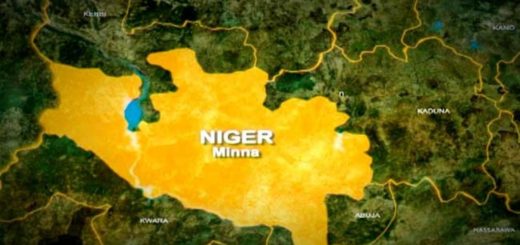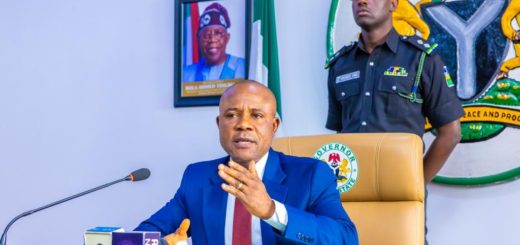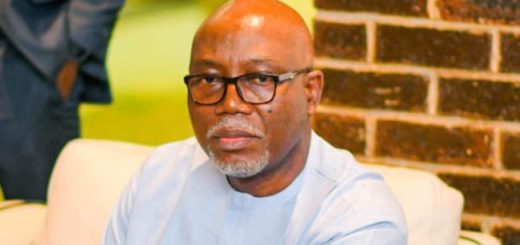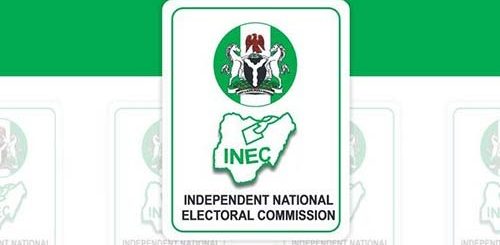Wike Calls Out Fubara’s Fake Peace — ‘Just Radio and TV Talk
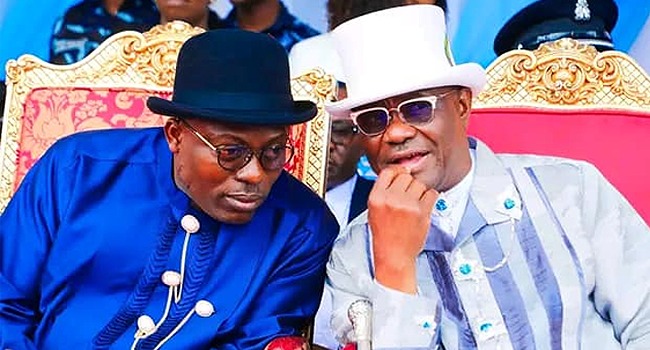 Tensions remain high in Rivers State as Federal Capital Territory (FCT) Minister Nyesom Wike and suspended Rivers State Governor Siminalayi Fubara disagreed publicly over the progress of resolving the ongoing political crisis.
Tensions remain high in Rivers State as Federal Capital Territory (FCT) Minister Nyesom Wike and suspended Rivers State Governor Siminalayi Fubara disagreed publicly over the progress of resolving the ongoing political crisis.
At a recent gathering of his supporters under the Simplified Movement, Fubara expressed optimism that peace and reconciliation efforts aimed at restoring both executive and legislative arms of government have reached an advanced stage.
However, Minister Wike countered these claims during a media briefing, accusing Fubara of lacking genuine commitment to reconciliation.
Fubara reassured the public that democracy and good governance would soon be restored, with both government arms collaborating for the benefit of Rivers people. He thanked President Bola Ahmed Tinubu for declaring an emergency rule in the state, crediting the intervention for stabilizing the volatile situation.
“I want to assure you that these issues will soon be resolved,” Fubara said. “Not only will the executive and legislative arms return, but the strong relationships we once had will be restored. What matters most is that we embrace forgiveness.”
He referred to Wike as his “oga” (boss) and expressed hope for reconciliation. “There is no reason why peace cannot be achieved between me and my oga. We are meeting and we will reconcile,” he added.
Fubara also acknowledged the sacrifices of the people and expressed his desire to earn their respect voluntarily.
But Wike dismissed Fubara’s remarks as superficial, calling them “radio and television reconciliation” without substance.
Supporting Wike’s position, former Emohua Local Government Chairman Dr. Chidi Lloyd accused Fubara of insincerity and avoidance, likening his approach to that of an ostrich burying its head in the sand.
“We know him well. He says one thing and does another,” Lloyd said. “He claims to have settled with his oga, yet Wike has not seen him in two months.”
Lloyd urged Fubara to engage in genuine reconciliation by meeting the House of Assembly members and other aggrieved stakeholders, including former local government chairmen.
He criticized Fubara for failing to meet key players in the crisis, especially since disagreements have dragged through the courts up to the Supreme Court.
Describing Fubara as a “prisoner of war” in the current situation, Lloyd said: “A prisoner of war does not dictate terms to his captors. It is left for him to stoop to conquer.”
Lloyd further highlighted the consequences of Fubara’s earlier actions, such as abruptly sacking local council chairmen and withholding allocations, which deepened animosities.
He advised the governor to adopt humility and initiate peace by apologizing to the Speaker of the House and other legislators.
“Some members have faced personal hardships due to withheld salaries,” Lloyd said. “This is a learning curve, and peace requires genuine steps.”
When questioned about Fubara’s confidence that the emergency rule would be lifted soon, Lloyd said the governor’s optimism likely stems from information from advisors.
“Fubara claimed a May 29 return date, which did not happen, then June 12 was suggested. We’ll see,” Lloyd remarked.
He concluded with a biblical reference: “Can two walk together unless they agree? Until the root cause is addressed, the problems will persist, much like Ola Rotimi’s saying in The Gods Are Not to Blame—until the rotten tooth is pulled, the mouth will chew with caution.”
